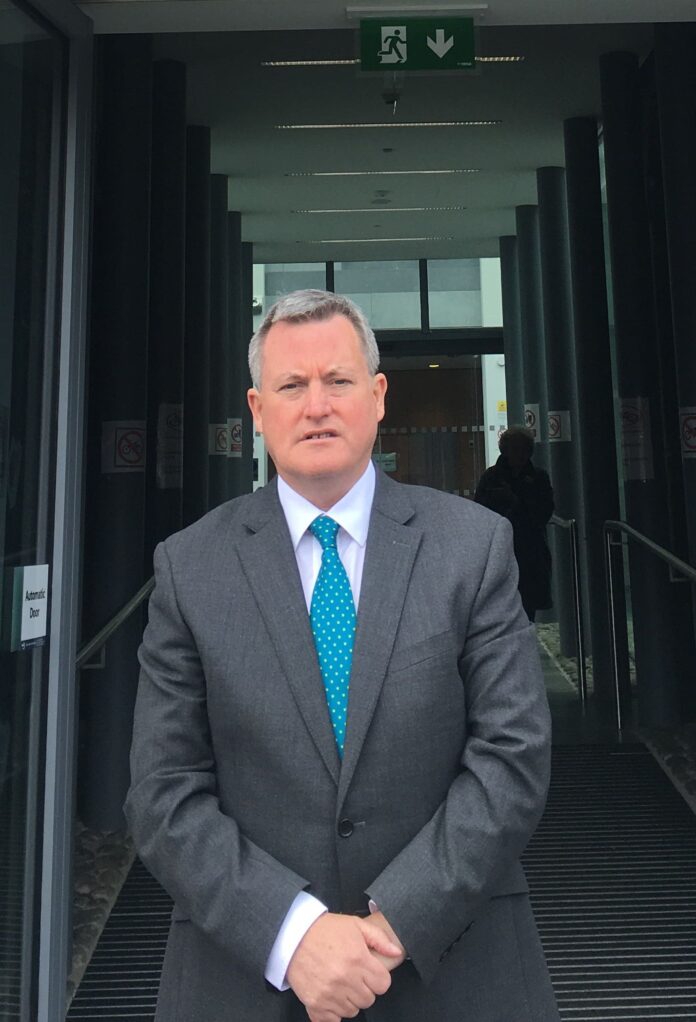
TWO ground-breaking projects in Limerick will receive €6.5m in funding under the Disruptive Technologies Fund, Limerick Fine Gael TD Kieran O’Donnell has said.
The Government is investing €95 million in successful projects all over the country over the next three years. The 29 projects cover areas such as life sciences, medical devices, ICT, artificial intelligence, manufacturing and environmental sustainability.
“I am delighted that 2 ground-breaking projects in Limerick under Disruptive Technologies Fund will receive €6.5m funding announced today by Government, with €3.65m for the TRIDENT project involving 8 collaborating research bases and industry including the University of Limerick and Analog Devices, and €2.85m for the SAFETYBOT Project involving 4 research bases and industry including Analog Devices.
The Full Project Details are:
| Project Description | Members | Research Priority Area | Regional Location | Total | |
| The goal of the TRIDENT project is to develop a low-cost, high-performance sodium-ion smart battery system using entirely sustainable materials and processes. The overall ambition is to provide a complete plug-and-play solution for grid-integrated residential battery energy storage systems
|
1) University of Limerick (UL); 2) Analog Devices International Unlimited Company; 3) mSemicon Teoranta; 4) ICERGi Ltd; 5) Glantreo Ltd; 6) TisaLabs Ltd; 7) Smart M Power Company Ltd; 8) Tyndall National Institute |
ICT | Limerick | €3.65m | |
| SAFETYBOT will realize Artificial Intelligence (AI) enabled safety solutions to service the Factory of the Future, enabling immersive collaboration between human workers, robots and automation equipment
|
1) Analog Devices International Unlimited Company; 2) Emdalo Technologies Ltd; 3) Modular Automation Ireland Ltd; 4) Tyndall National Institute |
Manufacturing and Materials | Limerick | €2.85m | |
Deputy O’Donnell said: “The pandemic and Brexit have combined to bring unprecedented economic challenges and volatility to our enterprise sector.
“But with every challenge comes new opportunities and the Disruptive Technologies Innovation Fund is dedicated to entrepreneurs and researchers working on some really exciting ideas to develop solutions to the problems we face.
“The Government is funding projects which will have wide-ranging benefits across many areas of society.
“There are many successful projects in the health sector, which we hope will result in better patient outcomes for thousands suffering from cancer, heart disease and fractured bones among other conditions. There is also focus on sustainability, with a number of projects looking at ways to improve and reduce energy use.”
Tánaiste and Minister for Enterprise, Trade and Employment, Leo Varadkar said: “These new technologies will create high-quality jobs in existing and emerging sectors, now and over the coming decades. There is a good spread of partners, based all around Ireland, highlighting the strength of our enterprise and research base all across the country.
“The level of DTIF funding involved – at €95million – demonstrates our commitment to continue to invest and rebuild a stronger, more resilient economy after the pandemic.”
All projects involve collaborations of between three and eight partners, including SMEs, multinational corporations and research organisations. SME participation is an integral part of the Fund, with 62 SMEs among the 111 organisations involved and 22 leading their project.
The funding announced today brings the total funding awarded under the three DTIF Calls to date to €235m. The Fund, established under the National Development Plan in 2018, commits a total of €500 million of government funding, alongside enterprise co-funding of projects.
Deputy O’Donnell said: “The Irish research sector is key to our future economic prospects. Many top-performing indigenous companies have emerged as spin-outs from the research conducted in our universities and higher education institutes.”
Minister for Further and Higher Education, Research, Innovation and Science, Simon Harris said: “DTIF is an important tool for realising our ambitions as a global innovation leader and a location for research excellence. The level of investment being made today in cutting-edge technologies will create employment opportunities for our graduates and help to maintain Ireland as an attractive destination for top research talent.”









